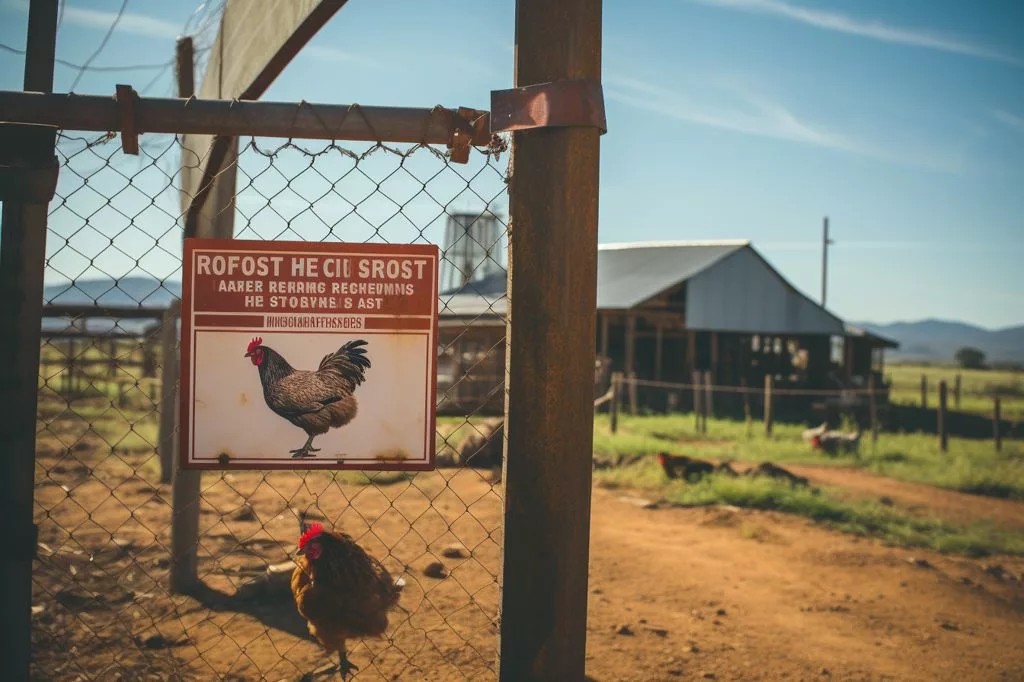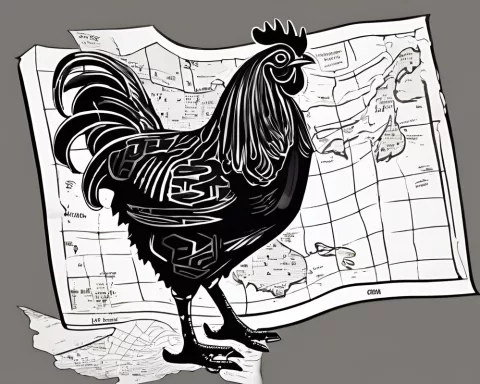The Western Cape poultry industry is on high alert against avian influenza, following recent outbreaks in other South African provinces. Farmers are urged to take proactive measures to prevent the virus from being introduced by wild birds. The poultry sector is a significant contributor to South Africa’s agricultural economy, creating over 52,000 direct jobs in 2022. Combating avian influenza requires both passive and active surveillance, along with preventative strategies like disinfecting vehicles and isolating new birds. The industry can weather the storm by adhering to biosecurity measures and maintaining vigilance.
The Need for Proactive Measures
In light of recent highly pathogenic avian influenza (HPAI) outbreaks in various South African provinces, Western Cape poultry producers remain vigilant. Although the region avoided HPAI incidents since June 2023, the threat from wild birds still exists. Poultry owners are encouraged to take proactive steps to protect their territory from the dreaded virus.
Dr. Ivan Meyer, Western Cape’s Minister of Agriculture, warned against the H5N1 HPAI virus, responsible for seven outbreaks in the area from April to June 2023. He emphasized the importance of vigilance in biosecurity measures to keep the virus from being introduced by wild birds or their droppings. The Western Cape’s poultry industry is a significant contributor to South Africa’s agricultural economy.
The Poultry Industry’s Economic Impact
Agricultural economists noted a rise in the gross value of broiler and layer industries from 2019 to 2022, with the poultry sector creating more than 52,030 direct jobs in 2022. The industry’s importance in South Africa is evident through the direct and indirect employment opportunities it offers. Hence, the battle against avian influenza is vital for maintaining the region’s economic stability.
Dr. Laura Roberts, a state veterinarian specializing in epidemiology with the Western Cape Department of Agriculture, discussed the containment of the virus during previous outbreaks. She disclosed that 1,398,757 birds were culled, and affected farms were depopulated, cleaned, and disinfected twice under the state veterinarian’s supervision. The outbreaks were then considered resolved and reported to the Department of Agriculture, Land Reform, and Rural Development, and the World Organisation of Animal Health.
Surveillance and Preventative Strategies
Combating avian influenza depends on both passive and active surveillance. Passive surveillance calls for poultry farmers to report any irregularities, such as clinical signs of avian influenza, increased mortality rates, or decreased egg production. In contrast, active surveillance entails random sampling of all poultry establishments, including backyard and commercial operations, on a regular basis.
Dr. Roberts recommended several general practices to prevent disease transmission between farms. These include discouraging interprovincial bird movement, introducing only healthy poultry onto properties, and isolating new birds for two weeks. Additionally, essential precautions like disinfecting vehicles, using footbaths to disinfect footwear, and preventing contact between poultry and wild birds, as well as their bodily fluids, must be taken.
Public Health and Safety
Although the risk of avian influenza transmission to humans is low, the Western Cape Department of Agriculture advises the public to avoid handling dead birds. Minister Meyer reassured the public that poultry products from grocery stores are safe for human consumption. However, he stressed caution when handling or slaughtering potentially infected poultry, suggesting the use of gloves, masks, and eye protection. Reporting sick or dead birds, both wild and domestic, to local authorities is also crucial.
The Path Forward
In these challenging times, the Western Cape’s poultry industry is at a critical point. Avian influenza’s ongoing threat hovers over the region’s thriving agricultural economy. Yet, by maintaining vigilance and adhering to biosecurity measures, along with passive and active surveillance, the industry can hope to weather the storm and emerge stronger and more resilient. The road ahead may be filled with obstacles, but the unwavering determination of the region’s poultry farmers and the support of agricultural authorities will ultimately lead to success.
1. Why is the Western Cape poultry industry on high alert?
The Western Cape poultry industry is on high alert against avian influenza due to recent outbreaks in other South African provinces.
2. What measures can farmers take to prevent avian influenza?
Farmers are encouraged to take proactive measures such as disinfecting vehicles, isolating new birds, preventing contact between poultry and wild birds, and reporting sick or dead birds to local authorities.
3. How important is the poultry industry to South Africa’s economy?
The poultry sector is a significant contributor to South Africa’s agricultural economy, creating over 52,000 direct jobs in 2022.
4. What is passive surveillance?
Passive surveillance calls for poultry farmers to report any irregularities, such as clinical signs of avian influenza, increased mortality rates, or decreased egg production.
5. What is active surveillance?
Active surveillance entails random sampling of all poultry establishments, including backyard and commercial operations, on a regular basis.
6. How was the avian influenza virus contained during previous outbreaks?
During previous outbreaks, affected farms were depopulated, cleaned, and disinfected twice under the state veterinarian’s supervision, and the outbreaks were then considered resolved and reported to the Department of Agriculture, Land Reform, and Rural Development and the World Organisation of Animal Health.
7. Is there a risk of avian influenza transmission to humans?
The risk of avian influenza transmission to humans is low, but the public is advised to avoid handling dead birds and to use caution when handling or slaughtering potentially infected poultry, suggesting the use of gloves, masks, and eye protection.
8. How can the poultry industry weather the storm of avian influenza?
The industry can weather the storm by adhering to biosecurity measures, maintaining vigilance, and utilizing both passive and active surveillance to combat the virus.












